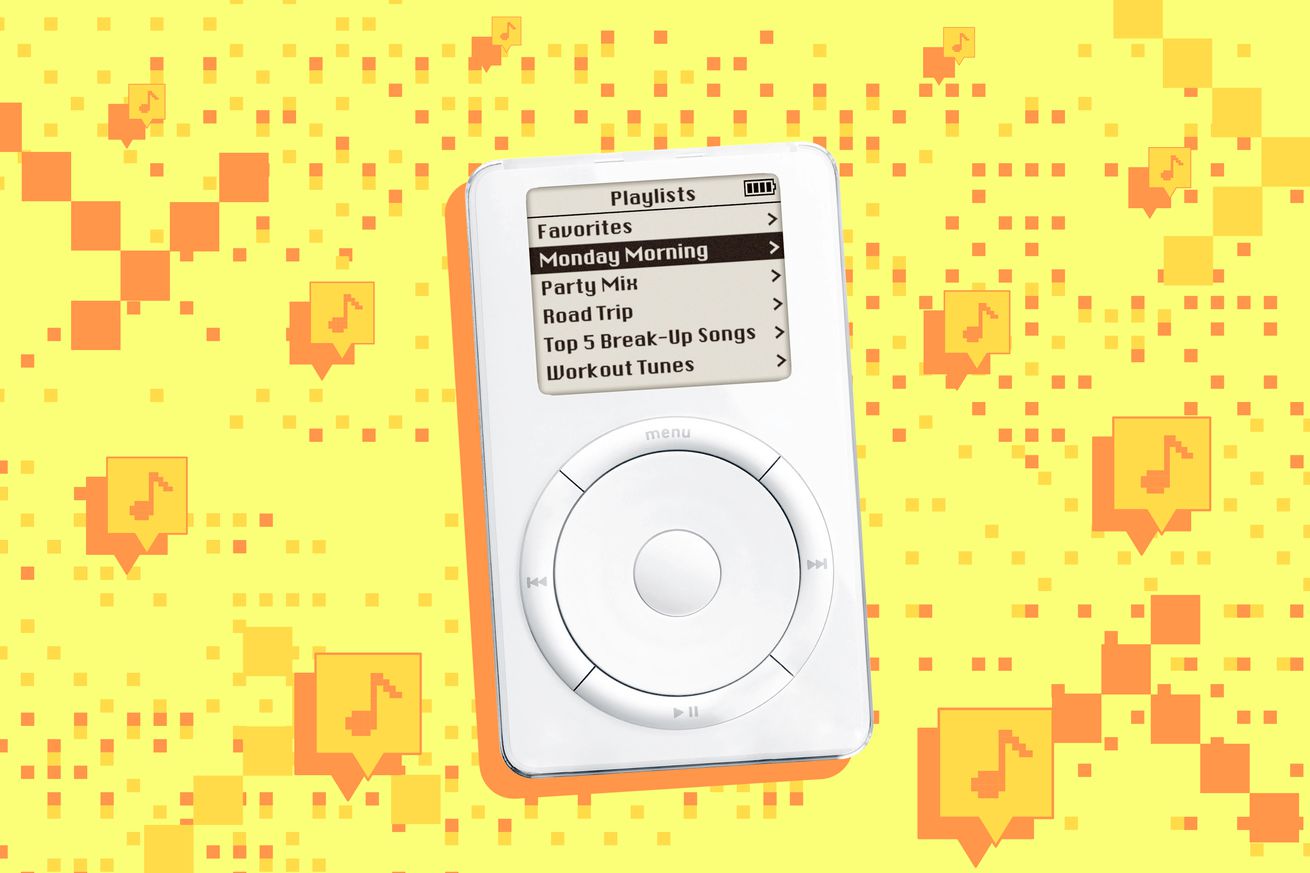
Another viral iPod app was pulled from Apple’s App Store
Retro Pod played right into TikTok’s love affair with the iPod. From demos of defunct Minis to outfits showcasing Shuffles as hair clips, an app turning your iPhone into an iPod was naturally going to be a hit. When Retro Pod started making the round in late December, TikTokers praised the app’s ability to replicate the iPod’s “tactile, bumpy, vibratey feels” that have been lost in the era of music streaming. Videos featuring the app racked up nearly 5 million views, but by the second week of January, viewers started commenting they couldn’t find the app at all. Retro Pod had disappeared from the App Store.
It is not confirmed why Retro Pod was removed from the App Store — neither the developer of the app nor Apple returned The Verge’s request for comment. But it is not hard to imagine that once the app blew up, Apple would not let it stand. The company has a very explicit rule against apps that replicate Apple products.
But Retro Pod had a good run. According to analytics firm Sensor Tower, the app received 443,000 total downloads on iOS, including 275,000 downloads in just the first week of January. It peaked at number 11 among music apps in the US before it was apparently removed by January 8th.
“People really want it. It’s a bit of cultural heritage.”
Apps recreating the iPod have cropped up a bunch of times over the years, even when iPods were common household gadgets. In 2009, iClassic was released for iOS as a jailbroken app. In 2019, (a different) retroPod app was made available on Android, and iPod.js debuted as a web-based iPod. Coinciding with the success of Retro Pod, iPod.js has also recently gone viral. Developer Tanner Villarete says that the site has had 1.8 million users total, with two-thirds of those visiting in the past week or so.
While those were created outside of the confines of the App Store, Apple has let another iPod clone slip in before. In 2019, an iOS app called Rewound attempted to function within Apple’s ecosystem. Two months after its debut, it got major internet buzz and garnered 150,000 downloads. That is when Apple put the kibosh on it. Rewound’s developer, Louis Anslow, said the app was first pulled for violating Apple’s in-app purchase rules. He modified and rereleased it before Apple took it down again for replicating an Apple product.
Like Retro Pod, Rewound flew a little too close to the sun. The apps should have been rejected in the first place, but Apple’s moderation team failed to catch them. Retro Pod was even able to push through five updates after its debut in October — the latest in a series of apps that didn’t get pulled until others drew attention to them. If an app is ever going to truly replicate the iPod experience for iOS users, it is going to need the unlikely approval of Apple.
The market is also not what it was when Rewound got pulled. Three years ago, Apple was still selling iPods (even if that last model, the iPod Touch, was basically just an iPhone minus the phone). Apple officially killed the iPod earlier this year. Between Apple stepping back from the iPod and consumers’ nostalgia for the product, Anslow thinks there is greater need than ever for an app that can turn an iPhone into an iPod.
“I’ve just been determined to try and get this back,” says Anslow. “Because people really want it. It’s a bit of cultural heritage.”
Though the public may still view the iPod as a nostalgic relic, for Apple, it is still proprietary tech. The rules determining what can and cannot be an iOS app are whatever Apple wants them to be. Until the company loosens its vice grip on its dormant IP, a true iPhone-to-iPod app is not likely to stand — unless, of course, Apple decides to release such an app itself. It seems like a missed opportunity for them to ignore the demand.
Correction: A previous version of this article incorrectly stated that the original iPod.js redirects users to their Spotify libraries. It instead streams music in browser. A different version of iPod.js redirects to Spotify.

